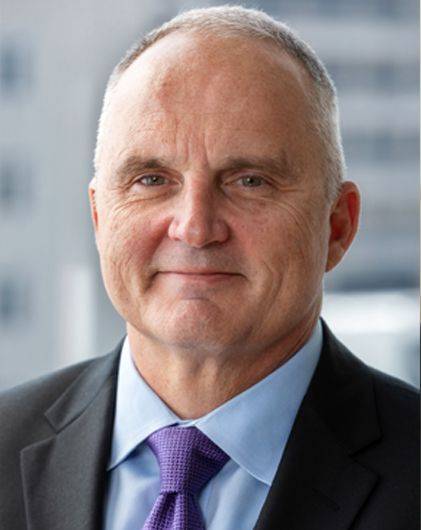Steps for Providers to Spot and Avoid Health Care Fraud Schemes
We spoke with Dr. Kyle Dean, who shared his firsthand experience with the Department of Justice’s (DOJ’s) health care fraud investigation and litigation process. Keep reading to learn important lessons that providers, hospital groups and health care counsel can implement to protect their practices and avoid becoming targets for fraudsters. Watch our discussion here.
Health care fraud is a leading source of DOJ criminal indictments and civil judgments. Fraudsters constantly evolve around regulatory and technology changes, targeting providers with increasingly sophisticated approaches. This puts added responsibility on providers to understand these schemes and steer clear of them.
There are ways for providers to protect themselves from becoming a target for health care fraud. By understanding how fraudsters operate, adding safeguards against exposure, and taking a proactive approach with regulators, health care providers can limit the risks of being targeted and keep their operations in compliance.
What triggers a health care fraud investigation?
The DOJ’s health care strike force units focus exclusively on countering health care fraud. As of 2022, their investigations have led to charges against more than 3,000 defendants and millions of dollars in penalties, as well as administrative actions from agencies like the Centers for Medicare & Medicaid Services (CMS).
Health care fraud investigations typically begin with a complaint or suspicious activity report. Any anomaly in billing or coding can put a provider on the DOJ’s radar. Is the provider suddenly writing batches of orders for DME when they haven’t historically done this? Are they ordering a large amount of genetic tests seemingly out of the blue? These are a few examples of activities that could raise the DOJ’s suspicions.
Investigators also look at providers’ payments to make sure they aren’t receiving kickbacks for referring patients to facilities or labs that they have a stake in or conflict of interest with. Prescription practices are another area of focus. Medical practice management software can be exploited to generate unauthorized prescriptions or false information, leading to accusations of heath care fraud.
How do these investigations impact providers?
Once an investigation is opened, it can lead to criminal charges, civil actions or both. The DOJ can impose criminal charges, fines, restitution and forfeiture of any gains from fraudulent activities. This means not only paying back the funds an individual made in the scheme, but also paying for the total amount of all false claims that were made, even those that CMS or private insurance didn’t pay.
The consequences extend far beyond the courtroom. These charges also put health care providers at risk of suspension and losing their medical license. The stress of lengthy legal battles and uncertainty of potential imprisonment can also take a significant toll on providers’ lives.
How do fraudsters target providers?
Fraudulent ancillary providers use sophisticated tactics to appear legitimate. They may cold-call health care providers through emails or phone calls, but they also advertise on Indeed and other reputable websites. “Recruiters” offer lucrative opportunities for medical review work or directorships. These offers often come with seemingly legitimate contracts and professionally designed portals. It can be tough to distinguish between real offers and fraud schemes.
How can providers spot the red flags?
- Consult with legal counsel and current employers. Before entering into any ancillary agreements, health care providers should consult with their legal team to review contracts and ensure compliance. Even if a contract looks legitimate on the surface, an attorney can spot issues in the fine print. If employed by a health system, providers should also check to see if their current employment contract allows them to pursue additional work. It could also be a good idea to have the system look over the contract before signing.
- Complete thorough due diligence. This includes verifying the legitimacy of the company and understanding the nature of its work. Asking the tough questions will help to uncover warning signs. Review for conflicts of interest and make sure the income isn’t based on referring patients to a certain facility or product. This could be a red flag for a kickback scheme.
- Be wary of “unbelievable” offers. Offers that seem too good to be true often are. Providers should be cautious of high-paying opportunities that require minimal effort or offer compensation for referrals. Providers should trust their instincts – if something doesn’t look right, or if it looks too easy, there may be a problem.
How can providers stay above-board with federal regulators?
- Keep a close watch for potential waste or abuse. The best way to stay off the DOJ’s radar is to not give them any reasons to investigate. Providers should frequently review practice operations to keep processes efficient and make sure their practice is being a good steward of government and insurance dollars.
- Document everything: Providers should document patient interactions, medical reviews, and all communications with ancillary providers. If providers also serve as a home health agency medical director or in a similar role, they should keep documents of the work they do to show how they earn their additional income. This documentation can serve as evidence of compliance in case of an investigation.
- Self-report. Self-reporting any potential violations to regulatory boards shows a commitment to compliance and transparency. This can also mitigate the severity of penalties. Providers should also self-report to licensing boards. If they are facing suspension and want to reinstate their license in the future, upfront honesty can be a mark in their favor.
- Stay informed. Providers should stay on top of current fraud schemes and regulatory changes. Awareness and education are key to avoiding interactions with fraudsters.
- Implement compliance programs. Health care providers and organizations should implement robust compliance programs that include regular training, internal audits and clear policies for reporting suspicious activities.
Please contact Walt Green or any member of Phelps’ White Collar Defense and Investigations team if you have questions or need compliance advice and guidance.


